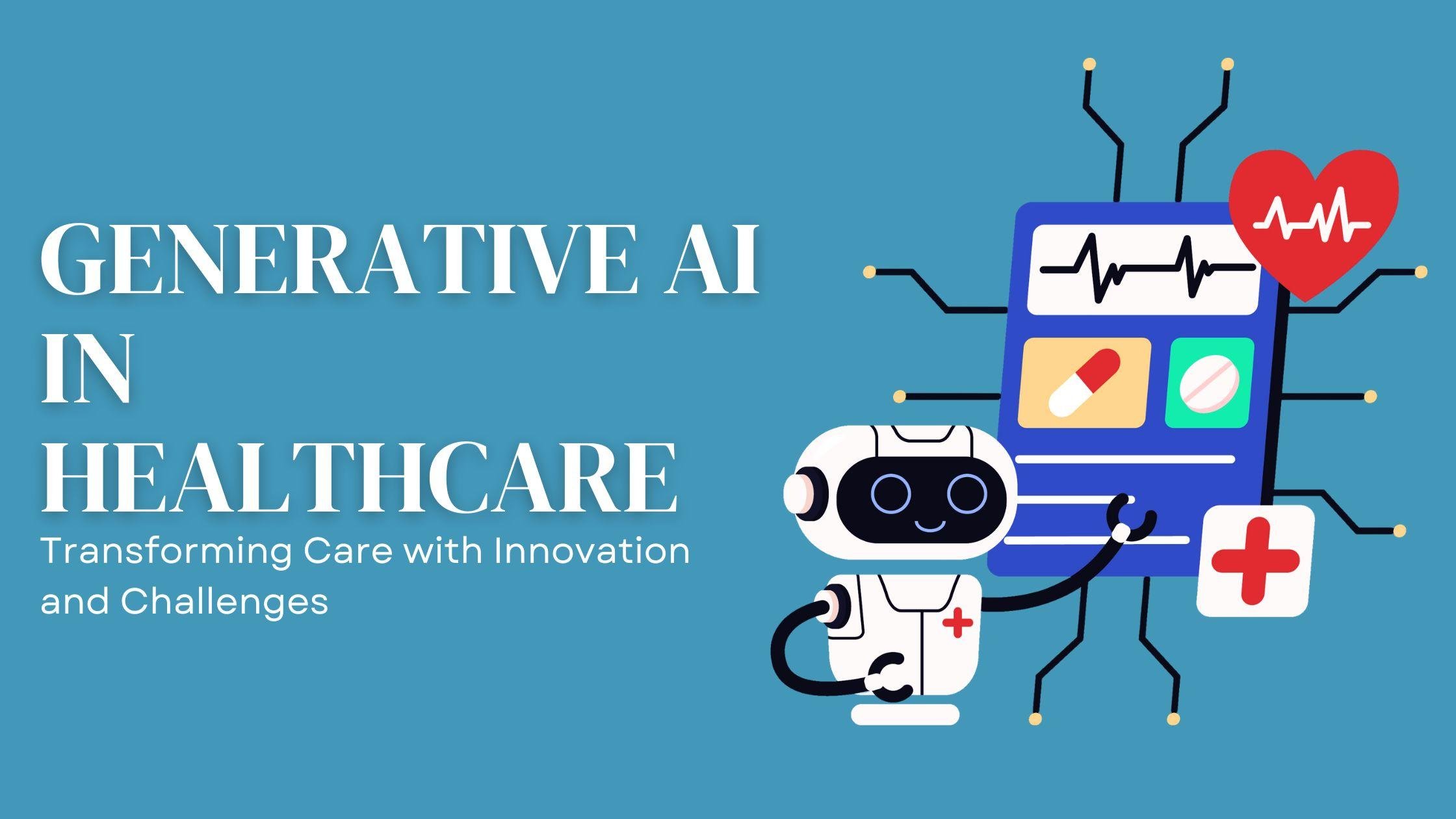Generative AI's Impact on Healthcare: Benefits and Challenges

Generative AI technology in healthcare is an emerging innovation.It mainly uses advanced algorithms to unite and analyze medical data. Moreover, it facilitates personalized and efficient patient care.
Generative AI in healthcare simplifies processes that used to require significant effort. It streamlines the summarization of large amounts of data from patient journals using automated data summarization. This saves significant time and frees healthcare professionals to focus on more complex patient needs.
Additionally, Gen AI transforms prior authorization and maintains processing of health insurance. It generally converts unstructured data into structured formats and provides real-time benefits verification. This blog post will discuss the various benefits and challenges of generative AI in healthcare. So, let us begin without any further ado.
Benefits of Generative AI in Healthcare
1. Enhanced Diagnostic Accuracy
Generative AI significantly improves diagnostic accuracy by analyzing vast amounts of medical data. AI/ ML tools process electronic medical records (EMRs), radiology images, and lab results with high precision. It recognizes patterns and abnormalities that might be missed by human eyes. This leads to more accurate diagnoses and better patient outcomes.
2. Streamlined Administrative Tasks
Various clerical tasks including data input and patient record processing are very tiresome and often involve high risks of inaccuracies. Such fundamental tasks can be completed through generative AI thereby relieving health care professionals of those burdens so they can attend to their patients. For instance, the AI-based chatbots receive and respond to patients’ inquiries and manage appointments freeing the human workforce.
3. Personalized Patient Care
Generative AI services can also be used to design individual treatment plans because it works with specific patient’s genetics, lifestyle and other information. This not only makes it easier to treat everyone but also means that the treatments given to patients are always going to be appropriate for the patient in question. They include an increase in the quality and efficiency of care thus increasing patient satisfaction.
4. Accelerated Drug Discovery
Discovery of new drug has remained a long and costly process for a long time. Generative AI accelerates this process by mimicking the processes through which drugs and biological targets engage estimating the efficiency and toxicity of a new compound. This speeds up the pace of bringing new treatment to the market and increases efficiency.
5. Improved Patient Engagement
AI chatbots, and virtual assistants interact with patients constantly, answering the patient’s inquiries helps them to stick to the prescribed medication therapies, and continuously assess the patient’s symptoms. They participate constantly with patients in managing chronic diseases to enhance the general wellbeing of the patients.
Challenges in Employing Generative AI in Healthcare
Employing Generative AI in healthcare is not without its challenges. This includes various issues related to interpretability, data requirements, transparency, ethics, risks and bias.
1. Interpretability and Transparency
Generative AI models possess deep learning algorithms. These make it difficult for healthcare professionals to understand the way decisions are made. The lack of interpretability and transparency obstructs trust and its adoption.
2. Data Privacy and Security
The requirement for large datasheets in AI models raises significant concerns about data privacy and security. Healthcare data is highly sensitive, and its handling must align with strict regulations like HIPAA in the United States.
3. Bias and Fairness
AI systems pick up and repeat biases from their training data. It causes unfair outcomes in patient care.
4. Scalability and Integration
Healthcare enterprises often struggle with scaling artificial intelligence solutions across different departments and integrating them with existing IT infrastructure.
5. Need for Expertise
The successful deployment of Generative AI services in healthcare requires a blend of domain expertise in both healthcare and advanced AI technologies, a combination that is rare and valuable.
How a Healthcare Software Development Company Facilitate Generative AI Deployment
1. Enhances Drug Discovery
A healthcare software development company provides AI-driven platforms that speed up the drug discovery process. By utilizing their vast datasets and AI models, pharmaceutical companies identify promising compounds faster and more efficiently. It reduces the time and cost associated with drug development.
2. Improves Disease Diagnosis
With advanced NLP and machine learning service models, these companies enhance the accuracy of disease diagnosis. The solutions provided help analyze clinical notes, and other medical data to assist in early and accurate disease detection. It ultimately improves patient outcomes.
3. Empowers Medical Chatbots
These companies offer technologies to develop medical chatbots that provide reliable and instant support to patients. These chatbots can recognize symptoms, answer health-related questions, and even facilitate virtual consultations that ultimately improve access to care.
4. Personalizing Patient Care
By analyzing patient data, software development companies AI models may provide help to healthcare providers deliver personalized care plans. These solutions are contingency-based and integrate patient history, preference, and genetics when providing recommendation for treatment and interventions.
Conclusion
Application of Generative AI carries a great opportunity in the healthcare domain because of better diagnosis, administrative work, patient-centered care, drug discovery, and engagement. However, its use is not without some concerns which include data privacy and security, bias and fairness, system integration issues, legal issues, and ethical issues. When these issues are solved, the generative AI option will hold great potential for the resolution of more efficient healthcare services and better patient results.
This is not just an advancement in technology in healthcare, it is an example of how generative AI development is helping create a medical world of services that can be more precise, timely, and customizable. While AI is still growing, and work on its solutions is being carried out, the healthcare sector needs to be watchful when working on it to ensure it embraces the advantages of this innovation.
- Art
- Causes
- Crafts
- Dance
- Drinks
- Film
- Fitness
- Food
- Games
- Gardening
- Health
- Home
- Literature
- Music
- Networking
- Other
- Party
- Religion
- Shopping
- Sports
- Theater
- Wellness


